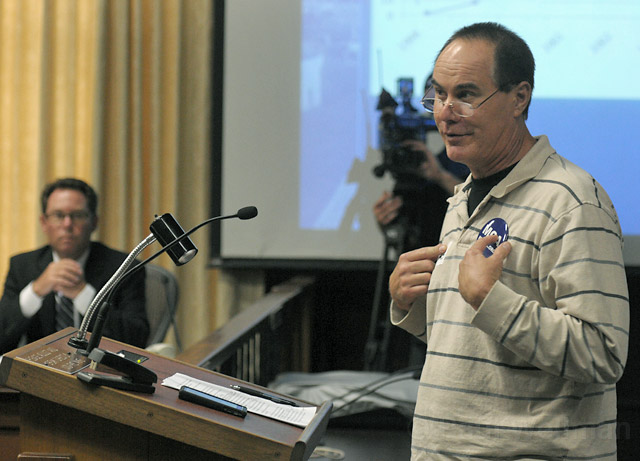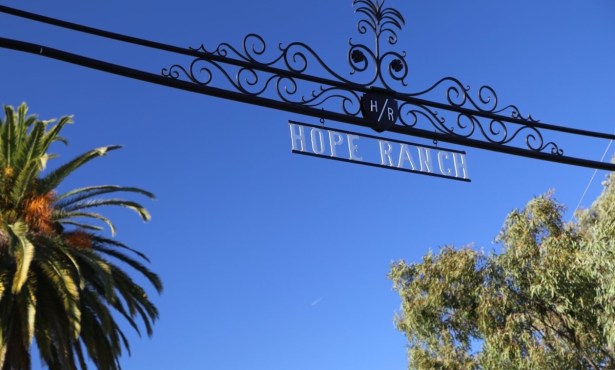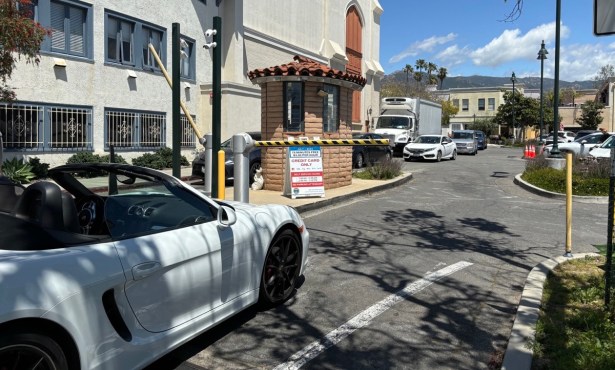Neighbors Tee-Off on Homeless Shelter
Demand Casa Esperanza Permit Be Reopened

It was standing room only at City Hall last Thursday, as members of the Santa Barbara Planning Commission got an angry earful from lower Milpas Street merchants, property owners, and residents — organized by the newly formed Milpas Community Association — blaming the Casa Esperanza homeless shelter for a veritable “crime wave” of homeless-related crimes. By meeting’s end, few bodily excretions were left unmentioned, as various speakers expressed vexation, exasperation, and frustration at being routinely subjected to displays of public defecation, urination, fornication, and intoxication by individuals they asserted were drawn to the neighborhood by Casa Esperanza, which opened its doors to the poor in 1999.
While the Planning Commission held the hearing only to take public comment — and to take no action — activists associated with the new neighborhood group clearly had another outcome in mind. They demanded that the Planning Commission reopen the conditional use permit (CUP) that allowed Casa to get started in the first place. That may prove far easier said than done. City Attorney Steve Wiley said that as long as Casa complies with the conditions of its approval — which have been twice amended to allow for expanded activities — the legal opportunity to reopen the shelter’s original permit is exceptionally limited. City planners insist that the shelter has, in fact, complied with all its operating conditions.
Al Bleeker, head of the newly formed community association, said it was unfair to ask lower Milpas Street to absorb the burden of so much additional crime. City police reported a 472-percent rise in homeless-related offenses in the lower Milpas neighborhood since the shelter opened, compared to a 20-percent increase citywide. John Dixon, owner of Tri-County Produce, termed the shelter a “noble cause,” but said the “collateral damage” was too great. “Any other business would have to mitigate their consequences,” he said. “Why is the Casa so special?”
Casa critics got a significant boost from Jim Westby, a major behind-the-scenes player who coordinated the political campaigns of the three council conservatives, all of whom have expressed serious concern that the Casa’s free hot lunch program has exacerbated friction with neighbors. Westby stated that he and his wife no longer felt safe shopping on Milpas Street. “Quite frankly, we’re taking our business someplace else,” he said.
The shelter had plenty of defenders on hand as well. Philanthropist Léni Fé Bland — who serves on the Casa board — said she felt safe shopping along Milpas Street and that she continues to do so. Mickey Flacks, a noted affordable-housing advocate, said the same. Several former shelter guests testified that their experience at the Casa helped them turn their lives around. A number of ministers argued it made no sense to cut free-food programs during economic hard times.
Most forceful, however, was Casa director Mike Foley, who argued that the problems of lower Milpas Street had many causes that had nothing to do with the shelter. In recent years, he said, the economy tanked, unemployment rose, and the ranks of the homeless swelled. At the same time, mental health and detox services have been slashed. The number of police officers dwindled as calls for service increased. The Milpas Business Association — which lobbied city hall and the cops on behalf of lower Milpas merchants — went out of business and, to make matters worse, freeway construction transformed lower Milpas into an isolated occupation zone.
With police sweeping homeless people out of downtown, the creeks, and TV Hill, it’s little wonder, Foley noted, that lower Milpas is seeing more activity. He pledged to work with the new organization and volunteered to cut back on the free-lunch program if — and only when — new alternative locations are secured and approved. In the meantime, MCA will be hosting a march this Saturday to protest violent street crime. The owner of Mama Lu’s has been beaten twice by alleged gang members and the Chinese restaurant vandalized. In addition, gang members beat to death a clerk from the Mi Fiesta liquor store about three weeks ago as he walked home from work.
Last week’s Planning Commission meeting was cut short due to scheduling conflicts. It will resume November 4.



